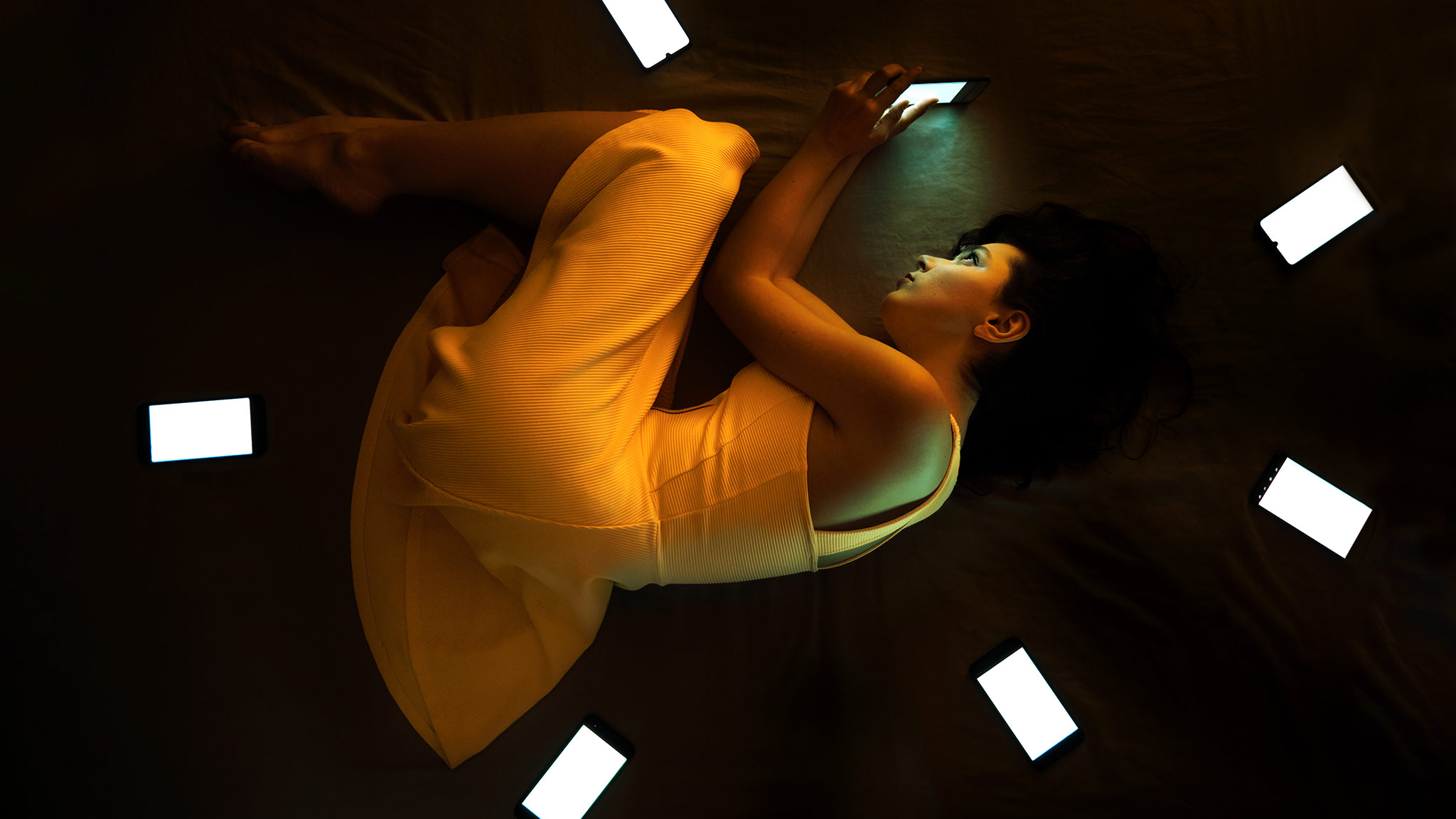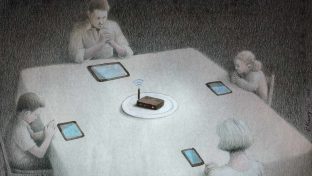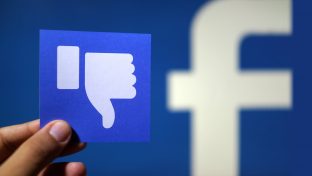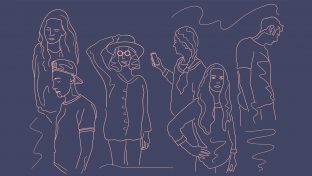Social Media, Loneliness And Isolation Often Go Hand-In-Hand

According to a recent study by the University of Pennsylvania, our reliance on social media — which was designed to help us connect with one another — is having the exact opposite effect on us.
- Rather than connecting with others and socializing, we are experiencing a dramatic increase in feelings of isolation, loneliness, and even depression as a result of social media.
- If you’re struggling with loneliness as a result of social media, try to remember that not everything you see on those platforms is real and your life is just as important as those who look like they have it all.
Struggling with loneliness or having a mental health crisis?
- Suicide Prevention Lifeline: 1-800-273-TALK (8255); Deaf or hard of hearing dial 711 before the number or connect via online chat
Socializing and connecting with others online…what’s not to like?
As it turns out, social media and loneliness often go hand-in-hand, as those struggling with Gen Z loneliness can attest.
Why is social media making us lonely, and what can we do about it?
How Does Social Media Use Cause Loneliness?
Although they’re supposed to bring us together, the way we use these types of platforms and the content we’re being exposed to both play a role in social media loneliness and isolation.
We spend so much time on social media — nearly two and a half hours per day, according to research — that we aren’t actively engaging with the people who are physically around us.
In fact, we are ignoring them entirely.
This actually has a name: phubbing. In other words, you’re snubbing someone in favor of using your phone.
What this means is that we are prioritizing our online world over the real one.
Naturally, this causes our human relationships to suffer. We aren’t connecting with people on a deep level, which in turn makes us feel lonely.
I certainly find myself absent-mindedly scrolling through social media when I should be engaging with my son and my husband.
We’re all guilty of this sort of behavior.
Beyond the time we spend on social media, the images and content we see can cause us to experience feelings of jealousy and inferiority.
This can be especially true for teens and young adults belonging to Generation Z who may be prone to feeling self-conscious already — especially if they’re feeling lost or have no idea what to do with their lives.
Platforms like Facebook or Instagram provide a universal stage from which anyone can broadcast heavily-filtered and carefully-edited highlight reels from their own lives.
Scrolling through these images can leave people feeling left out if they weren’t included in a social gathering or jealous because their life seems inferior and dull by comparison. For millennials and Gen Z’ers who grew up with these platforms, seeing the best parts of others’ lives can make you feel incredibly lonely.
Furthermore, when we see social media posts receiving hundreds of “likes,” we feel as though we’re somehow losing a popularity contest when our content doesn’t garner as much admiration.
Humans are naturally competitive and envious creatures.
Social media provides us with the perfect platform to one-up each other by posting about our wedding, job promotion, exotic vacation, or even what we look like in a bikini.
After the birth of my son, although thrilled at becoming a mother, I found myself scrolling through Instagram while breastfeeding in the middle of the night, feeling nothing but jealousy over the images my friends shared from their vacations.
I couldn’t help but compare my mundane life to their glamorous ones — it’s human nature.
Can Social Media Loneliness Ever Be Cured?
That’s the million-dollar question. According to this article, we need to start adjusting our attitudes towards social media.
We have to begin approaching it as an unhealthy habit that is bad for us — something akin to junk food or smoking.
Thinking about it, that’s exactly how it feels to me sometimes.
We are never going to eradicate social media from our lives completely, but we need to think very carefully about how we use it — and why.
Here are a few quick tips that I’ve found helpful to alleviate social media loneliness, recommended by experts.
- Set a time limit on your phone to create boundaries.
Some trackers can help you to identify how much time you’re spending on different apps, but if you’re using iOS 12 or above (and also on some Android phones), there is a native time limit you can set for specific applications.
If you are using a device without this built-in feature, there are downloadable mobile apps that can help you limit your social media use.
Whichever way you go about it, try to decrease the amount of time you spend scrolling on social platforms — even if it’s only by a few minutes a day.
- Turn off your notifications.
One of the easiest things you can do to limit your exposure to social media is to turn off your notifications.
Yes, it’s that simple.
Those little alerts have a nasty habit of popping up on your phone screen at any time of day, demanding your immediate attention — even if you’re hanging out watching television with your family.
It can be hard to ignore the urge to pick up your phone whenever you hear that familiar little chime telling you, “Someone just tagged you on Facebook…come see.”
Turn those notifications off.
- Evaluate why you are using social media and how it makes you feel.
This might seem like a no-brainer, but it’s an important thing to consider — why do you use social media in the first place?
Are you generally interested to see what your friends and family are up to? Do you interact with them through the platform? Are you happy and feeling connected after using it?
Or…are you just filling time?
Do you scroll mindlessly through pictures of people you don’t really know, without participating or interacting with the posts in your social media feed?
Do you end up feeling isolated and depressed as a result?
If it is the latter, perhaps it is time to fill your time more productively.
Try phoning a friend and arranging a time to meet up face-to-face. Pick up a book or do some exercise — there are plenty of more useful ways to occupy your time.
Closing Thoughts
A filtered photograph of someone on a sunny beach creates an outward appearance that their life is perfect when it might be anything but.
Although social media has become a permanent fixture in modern life, that doesn’t mean it has to rule our lives.
It’s okay to sign off and focus on the real world that’s right in front of you.
Editor’s Note: This article is part of The Roots Of Loneliness Project, the first-of-its-kind resource that comprehensively explores the phenomenon of loneliness and over 100 types we might experience during our lives.
Find Help Now
If you’re struggling with loneliness from social media, we’ve put together resources to meet you wherever you are — whether you want someone to talk to right now, or are looking for longer-term ways to help ease your loneliness.
- Suicide Prevention Lifeline: 1-800-273-TALK (8255); Deaf or hard of hearing dial 711 before the number or connect via online chat
- Resources & Emotional Support For Loneliness
- Volunteer & Pet Adoption Opportunities






